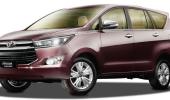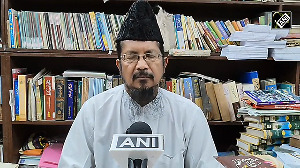After banning registration of diesel cars and SUVS with engines above 2,000 cc in December last year till March 31, the Supreme Court has extended the ban until the next hearing which is expected in July

Luxury car maker Mercedes-Benz on Wednesday said it has put on hold investments in India due to ban on sale of larger diesel vehicles in Delhi-NCR and the issue has put a question mark on the country's credibility as an investment destination.
Terming the current uncertain situation surrounding diesel vehicles as a "lost opportunity for India", the German auto giant said its investments will be affected in the long term if the Supreme Court ban continued.
"Most of the decisions are postponed rather than completely cancelled. If the ban continues, then certainly cancellations will come into play," Mercedes Benz India managing director and CEO Roland Folger told PTI.
He was replying to a question on the impact of the ban on the company's plans for India.
Stating that the company sees no growth in the luxury car segment at the moment, he said bringing additional products, which is linked directly to further investment and more jobs, are dependent on more volumes.
"These things have been put on hold for the time being... We are basically slowing down in our additional hiring," Folger said.
"It's just that you cannot justify higher investment with low volumes," he added.
The company, which has invested Rs 1,000 crore (Rs 10 billion) over last ten years, had last year announced investment of Rs 150 crore (Rs 1.5 billion) to double production capacity at its Chakan plant to 20,000 units per annum.
Expressing concern over the continued uncertainty, Folger said: "Looking into the future, this is extremely difficult mainly because we don't know what is going to happen now. The big question is what is going to happen after July."
After banning registration of diesel cars and SUVS with engines above 2,000 cc in December last year till March 31, the Supreme Court has extended the ban until the next hearing which is expected in July.
Mercedes-Benz, Tatas-owned JLR, Toyota and Mahindras are among the automakers worst hit by the ban.
On the repercussions of the ban, Folger said: "It is a lost opportunity for India. The point I am trying to make always is, look at it as an international issue. India's credibility is going to drive investments and in order to stay ahead of the game and make use of the overall economic environment it would be good if we have long-term solutions that help us to provide that kind of growth."
He further said: "When we came to India, it was perceived as large potential market with very continuous, reliable growth. These things (the ban and higher taxes on diesel vehicles) have stopped that."
Folger also said that targetting only big vehicles in order to control pollution by leaving out mass segment cars is a flawed approach. "If you want to clear air then you will have to address many things besides automobiles."
He also said it wasn't right to "punish" the big diesel cars and SUVS "just because some people say as it is for rich people" as the ban also impacts other common people too.
Suggesting a holistic approach to solve the pollution problem, Folger said advancing implementation of more advanced Bharat Stage-VI emission standards in a staggered manner must be considered.
"We can bring BS-VI vehicles as early as 2018 but we need fuel availability," he said.











 © 2025
© 2025